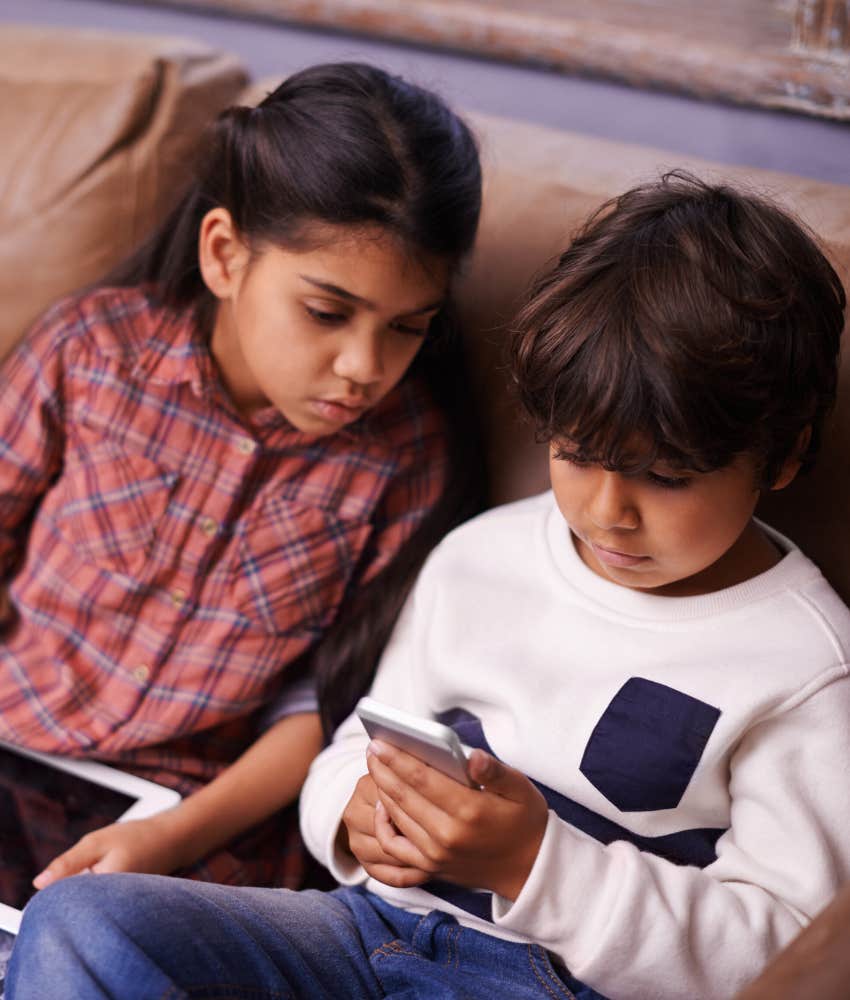Teacher Tries New Mental Exercise With Her Students To Help Them 'Practice Being Bored'
She insisted that this exercise would help her students pay attention in class, something many kids struggle with.
 BearFotos | Shutterstock
BearFotos | Shutterstock Nowadays, when children are bored, they don't go outside and play with the other kids in their neighborhood, pick up a book, or even just sit and play with their toys. Instead, many children turn to their screens, whether it's their iPads or the TV. Sitting idly isn't something that children either know how to do or choose to do.
To combat this inability to stay calm while doing nothing, an elementary school teacher named Anna shared a new exercise that she's started doing with her students, and it's rooted in letting them become familiar with boredom.
To increase her students' attention spans, the teacher tried a new mental exercise to help them 'practice being bored.'
"We're going to try something new today, okay? Miss Kidd is going to teach you how to be bored," Anna began, addressing her classroom of students. She explained to them that there would be times in life when someone might be bored, like standing in line at the grocery store or trying to pay attention during social studies class, which she acknowledged might bore some of her third-graders.
"You still need to have the self-control to be able to listen. And relax your body, and just focus on your brain," she informed her students. "Here's the deal: We're gonna start with a small amount of time. And then it's going to increase throughout the week. I'm gonna give you three minutes."
The teacher had her students sit still at their desks for three minutes, doing nothing.
Anna explained to her students that for three minutes, they were expected to stay seated and do absolutely nothing.
She offered them coping mechanisms like putting their heads down on their desks, sitting and staring off into space, or singing a song in their heads. They were just not allowed to talk or interact with each other at all during those three minutes.
Anna insisted that this exercise was so that the students would be able to build up their stamina for school and sitting in class. This came after she noticed that most of the kids were struggling to sit still for 30-second intervals, much less an entire day.
She pointed out that it was impossible to teach them when they constantly tuned her out.
This mental exercise was supposed to help her students practice being comfortable with not only sitting in silence with only their thoughts to entertain them but also staying calm while doing so.
A large number of students actively struggle with focusing and paying attention in class.
Twenty-six percent of public school teachers reported that "a lack of focus or inattention from students" had a "severe negative impact" on learning during the 2023-24 school year, according to new National Center for Education Statistics (NCES) data. The number spiked to 75% when school educators were asked if students’ lack of focus or inattention had either a "moderate" or "severe" negative impact on learning.
When asked in the survey about the extent to which students' behaviors affect school and whether any of that has a negative effect, teachers indicated that, in addition to a lack of focus and attention, students were also unprepared for class, disruptive in the classroom, not doing their individual work, and using an excessive amount of electronics despite not being permitted.
For younger students, this could be a direct result of spending too much time on their iPads, and therefore, their attention spans have suffered as a consequence.
 PeopleImages.com - Yuri A | Canva Pro
PeopleImages.com - Yuri A | Canva Pro
It's not just children, either. Adults spending an excessive amount of time on social media can also have a detrimental impact on their focus. That's why Anna's mental exercise with her students is a genius way to not only let her students become familiar with boredom but also not be scared of it.
It's only through boredom that we can become comfortable with being alone with ourselves and our thoughts.
In moments of boredom inspiration sometimes sparks, and it's a valuable lesson for young kids to learn that they don't have to constantly be doing something, especially when that boredom has them turning to screens instead of using their imagination.
Nia Tipton is a staff writer with a bachelor’s degree in creative writing and journalism who covers news and lifestyle topics that focus on psychology, relationships, and the human experience.

